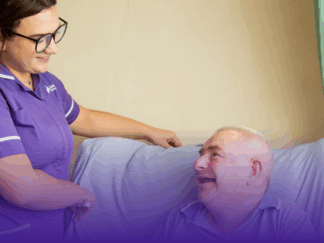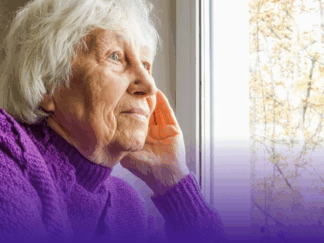
Who is a caregiver?
A caregiver is anyone who supports the wellbeing of individuals requiring assistance, potentially with everyday tasks. This can include someone with disabilities, mental health or declining physical health. The inevitable growth in aging populations will likely cause increasing numbers of caregivers globally.
Caregiving is immensely rewarding and can provide a sense of purpose. However, it is often demanding, potentially leading to physical and mental stress. With over 57% of carers feeling consistently overwhelmed, understanding caregiver burnout and stress management is integral in reducing burnout and promoting a more balanced lifestyle.
What is caregiver burnout and why might this happen?
Caregiver burnout refers to a state of exhaustion, either physically, emotionally or mentally. Burnout is often a build-up of stress over long periods that tends to go unnoticed until exhaustion.
We understand that devoting time to caring for loved one/s can take up a lot of energy and time. However, this can often cause caregivers to neglect their own physical and mental health, placing them at risk of caregiver burnout.
5 Risk Factors for Carer Burnout
- Providing care for a loved one
- Having a job role supporting others
- A high caregiving workload
- A limited support network
- Unrealistic expectations of personal responsibility
9 Signs and Symptoms of Caregiver Burnout
- Physical or emotional exhaustion
- Anxiety
- Guilt
- Frequent illness
- Changes in sleep patterns
- Social disengagement
- Fluctuations in appetite, weight or sleep patterns
- Concentration difficulties
- Low mood
5 ways to manage caregiver burnout
Whether or not you are experiencing symptoms of caregiver burnout, identifying symptoms is critical in taking the next steps to recovery. Five recommendations for care burnout are listed below:
- Do not be afraid to ask for support. Whether it is a friend, family member or a support line, speak out if you feel helpless or overwhelmed. Holding in concerns could make you feel worse.
- Prioritise self-care. Never underestimate the impact of quality sleep, moving your body and a balanced diet. Small steps can have significant results.
- Manage time effectively. It is important to implement boundaries and understand your personal limits. Do not feel guilty for making time for yourself.
- Discover effective coping mechanisms. Resetting our body’s response through mindfulness or gentle stretching can be helpful for winding down.
- Make use of local services and resources. Remember you are not alone. Local support groups can point you towards others in a similar position.
Clece Care Services’ Respite care
At Clece Care Services, we provide high-quality respite care for individuals who need long-term or temporary breaks from caregiving. We offer flexible services to accommodate to your loved one/s needs, providing care in the comfort of one’s own home.
It may be daunting to allow someone else to take care of your loved one. However, it may be the much-needed step towards finding the balance between your personal life and the duties of a caregiver, helping you feel more in control.
Contact our Clece Care Services team to discover how our care assistants can help alleviate your duties as a caregiver, allowing you to take the time to recover so you can keep going.
Our partners & accreditations















































